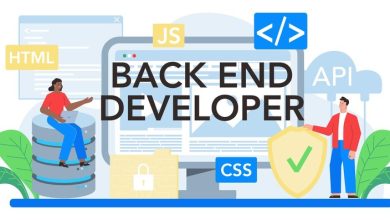
Best Programming Language For Mobile
Best Programming Language For Mobile, Mobile applications have become an integral part of our daily lives, and the demand for feature-rich and user-friendly apps continues to grow. Building a mobile application that works seamlessly across different platforms requires careful consideration of the programming language. In this article, we will explore the best programming language for mobile development, the skills and requirements for building cross-platform applications, and the role of a mobile engineer in this dynamic field, kit yourself on mobile app development using the link this link Udemy
For cross-platform mobile app development, selecting the appropriate best programming language and framework is essential to producing scalable, effective, and high-quality applications. In this process, mobile engineers are essential because they use their expertise to develop concepts into reality and create memorable mobile experiences. Mobile engineers must keep up with evolving technologies and best practices to flourish in their positions and have a positive impact on the constantly expanding field of mobile apps as the environment of mobile app development continues to change, use this link to navigate Best programming language

Best Programming Language for Mobile Development
- React Native: React Native has gained immense popularity for cross-platform mobile app development. Developed by Facebook, it allows developers to build mobile apps using JavaScript and React. The advantage of React Native lies in its ability to write code once and deploy it on both iOS and Android platforms. This not only reduces development time but also ensures a consistent user experience across devices.
- Flutter: Flutter, developed by Google, is another powerful cross-platform framework. It uses the Dart programming language and provides a rich set of pre-designed widgets, making it easier to create visually appealing and responsive mobile apps. Flutter’s hot reload feature allows developers to see the changes in real-time, streamlining the development process.
- Xamarin: Xamarin, now a part of Microsoft, enables developers to create cross-platform mobile apps using C#. It allows for the reuse of code across different platforms, providing a native-like performance. Xamarin integrates seamlessly with Visual Studio, making it a preferred choice for developers familiar with Microsoft technologies.
Skills and Requirements for Cross-Platform Mobile App Development
- Proficiency in Programming Languages: A strong foundation in programming languages is essential for mobile app development. Depending on the chosen framework, developers should be proficient in languages such as JavaScript (for React Native), Dart (for Flutter), or C# (for Xamarin).
- Understanding of Frameworks: Knowledge of the selected cross-platform framework is crucial. Developers should be familiar with the features, libraries, and tools provided by frameworks like React Native, Flutter, or Xamarin to leverage them effectively during the development process.
- UI/UX Design Skills: Creating a visually appealing and user-friendly interface is crucial for the success of a mobile app. Developers should possess basic UI/UX design skills to ensure a seamless and engaging user experience.
- Testing and Debugging Skills: Cross-platform mobile app developers need to be proficient in testing and debugging tools. Thorough testing across different devices and platforms is necessary to identify and fix any compatibility issues.
- Version Control: Proficiency in version control systems like Git is essential for collaboration among developers. It helps in managing code changes, tracking issues, and ensuring a smooth development workflow.
Mobile Engineer: The Architect of Cross-Platform Mobile Applications
A mobile engineer, also known as a mobile app developer, is a professional responsible for designing, developing, testing, and maintaining mobile applications. They are adept at using programming languages, frameworks, and tools specific to mobile app development. A mobile engineer’s role encompasses various responsibilities:
- Code Development: Mobile engineers write code to implement the functionality and features of a mobile app. They choose the appropriate programming language and framework based on the project requirements.
- UI/UX Implementation: Ensuring an intuitive and visually appealing user interface is a crucial aspect of a mobile engineer’s role. They collaborate with UI/UX designers to implement the design elements and create a seamless user experience.
- Testing and Debugging: Mobile engineers conduct thorough testing to identify and fix bugs, ensuring the app functions smoothly on different devices and platforms. They use debugging tools to analyze and resolve issues efficiently.
- Cross-Platform Development: For building cross-platform mobile applications, mobile engineers choose frameworks like React Native, Flutter, or Xamarin. They leverage these tools to write code that can be deployed on both iOS and Android platforms, minimizing development efforts.
- Continuous Learning: Mobile engineers need to stay updated with the latest trends, tools, and technologies in the rapidly evolving mobile app development landscape. Continuous learning is essential to adapt to new challenges and deliver innovative solutions.
Discover more from Infotech
Subscribe to get the latest posts sent to your email.






